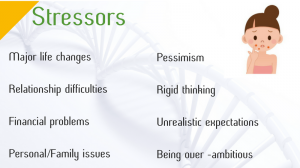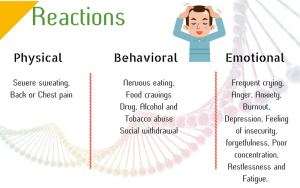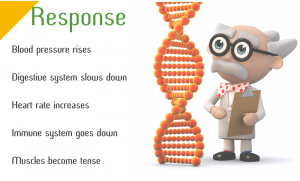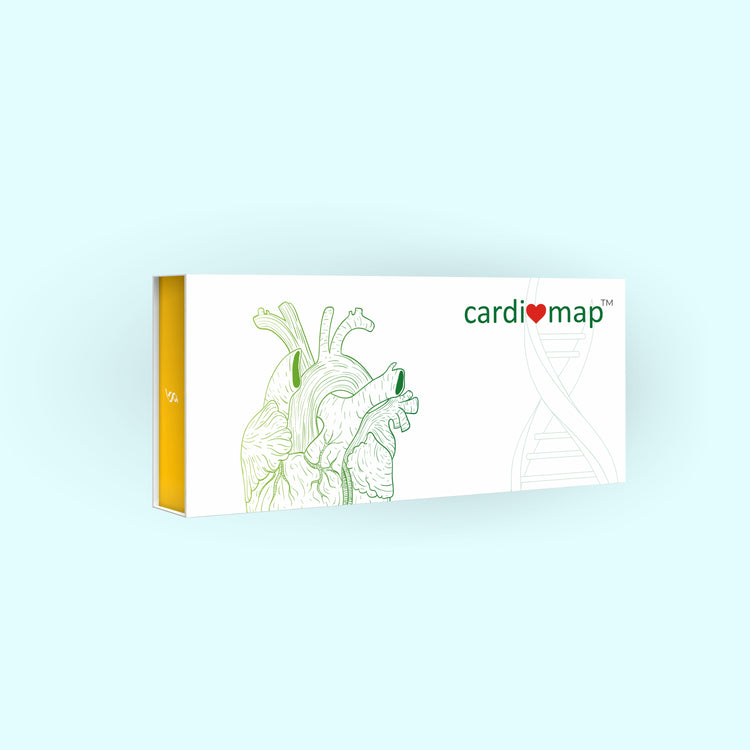Stress on STRESS
Nov 02, 2016
24998 Views
“We work better under pressure”
-said every student ever!
“Can you work in a stressful environment?”
-asked every interviewer ever
“You need to cut down on your stress levels”
– every cardiologist to every over-40 patient!
Did you know that anything that poses challenges to our well-being or peace of mind is classified as stress? Some triggers get you going, pump up your blood and try to satiate your thirst for adventure! Most of the time however, they undermine both our mental and physical health. The challenges and obstacles we willingly accept to better perform in life, sometimes become a bit too much for us and our nerves.
Genes do more than just colour your hair and eyes – they help you manage stress by mediating the brain’s response to external stimuli. For example, two individuals, when placed under similar circumstances, handle stress with varying degrees of tenacity. This is because of multiple (and very interesting) facets of their personality such as emotional resilience, pain threshold, learning from errors and more. Such traits have been linked with specific genes which regulate neural signalling and impulse.
Tests which evaluate one’s emotional range, memory, reflex response and adaptability (genetic factors) can be an effective way to assess concerns if any, and follow it up with appropriate management techniques.
Stress on knowledge
One must understand the difference between “stress” and “a stressor”. A stressor is an agent or stimulus that causes stress. Stress is the feeling we have when under pressure, while stressors are the things we respond to in our environment. Examples of stressors are noises, unpleasant people, a speeding car, or even going out on a first date. Generally (but not always), the more stressors we experience, the more stressed we feel. One must therefore understand their reaction when they are about to lose their nerves and what their triggers. The awareness of these factors itself can help you better adjust to these situations. The images below provides a basic insight into the same.



We understand why you could be worried …

Stress of any kind is related to a plethora of clinical conditions! Worry is definitely a gift that doesn’t appreciate loneliness. It comes free with several disorders and brews with the possibility of more… Migraine and Hypertension are well known triggers. Nicotine and Alcohol addiction – the most common form of dealing with stress. Post or before going down the spiral, other bits that get severely affected is our diet pattern which further causes vitamin deficiency and weight fluctuation. Such changes in the body and to our regular routine leads to depression. We are strong but there are limits to our powers as well. Hence……
Don’t Stress. Breathe. Stop freaking out!

We live in a dynamically changing world. Our speedy adaptation and understanding of “change” is key to our consistent survival. We know that like all beings – we react differently to the various situations in life. What we need to understand is – what are the factors that trouble us most and how do we reach “zen” in the most relative way possible without becoming a monk or giving up all our greedy pleasures in this life. Regular exercise (cardio/yoga), a healthy diet and meditation are some of the most common forms for training your body and calming your mind.
However, is it possible that you are more prone to stress than others? Do any of your family members have a stress related/induced clinical condition?
Genetics of Stress

A large number of studies are being conducted and an association between strain and genes has been noted. “Intuitively, it makes sense to assume that stress is linked to genetics since genes influence how we perceive things and our sensitivity to stressful situations. Could it be that the reverse might also be the case? Does stress have the capacity to influence our genetic makeup, a biological constitution long considered unchangeable? Believe it or not, genes are not as untouchable as we previously thought, since stress can have an impact on them. The interaction between stress and genetics is, as you can imagine, very complex.” (Robert-Paul Juster & Marie-France Marin, 2011)
But genetics is not the only active influence! Genes and our environments participate in a complex inter play better known as epigenetics. If you are lucky enough to grow up in a favorable environment, it is highly probable that some genetic predisposition to one disease or another might be negated. Conversely, if you are confronted by particularly stressful situations or traumas, your environment might be less favorable and your genetic vulnerabilities might become expressed. For example, if you have been judged by someone – a friend, family, close relatives regarding obesity or your weight management. If you have a genetic predisposition towards low self esteem and depression, the probability of succumbing to it is greater in comparison to someone who is not genetically inclined towards self pity. But do note, that you are not the only victim. This risk of depression is greater for someone with a genetic predisposition but not privy to the situation. This definitely goes to say our response towards stress is based on the intricate balance among genetic and environmental factors. The ability to be aware of both would enable us to be better equipped for strenuous situations. One could hone their potential to better perform in certain stress- related environments and understand when to pull the brakes, by identifying their triggers.
…And if all of that doesn’t work, you can always go back to Disney!

Hakuna Matata
(It means no worries
For the rest of your days
It’s our problem-free philosophy)

